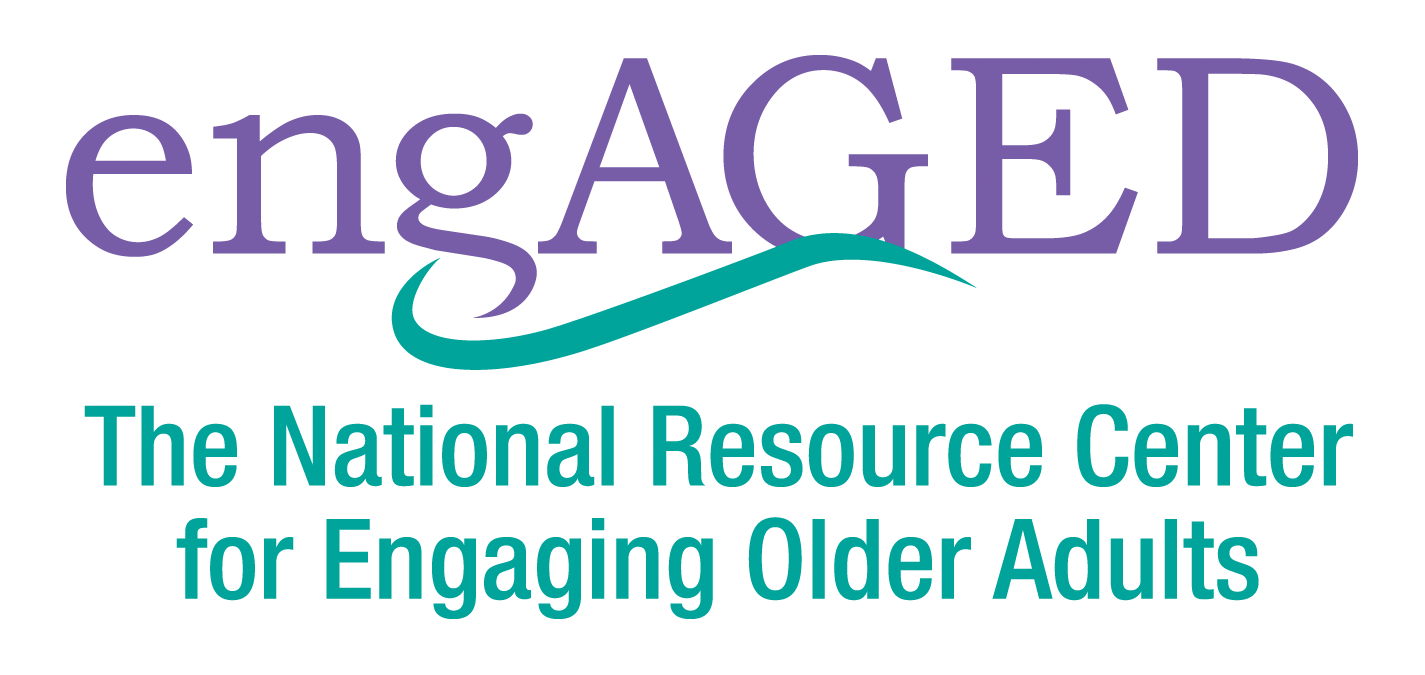Social Engagement and Mental Health: Takeaways from the November engAGED Webinar
The November engAGED webinar highlighted programs and interventions Aging Network and partner organizations can replicate to promote social engagement and positive mental health outcomes among consumers.
Setting the Stage
The Illinois Coalition on Mental Health & Aging shared that approximately 20 percent of adults 55 and older experience some type of mental health concern such as depression, anxiety or cognitive impairment (1) and rates of anxiety and depression among older adults have increased during the COVID-19 pandemic. (2) Social isolation and loneliness can have a profound impact on mental health, as loneliness is associated with higher rates of depression, anxiety and suicide. (3) Offering programs and interventions that promote social engagement not only helps participants build meaningful connections and reduce feelings of isolation and loneliness, it also contributes to positive mental health outcomes by helping consumers manage negative feelings including sadness, fear, anxiety and grief.
Options for People to Address Loneliness (OPAL) Program
Rogue Valley Council of Governments Area Agency on Aging in Central Point, OR developed the Options for People to Address Loneliness (OPAL) program to offer person-centered, behavioral health support through behavior activation, options counseling and action planning to help reduce social isolation and loneliness among participants. The program, which takes place over the phone, via telehealth or in the home, includes six one-hour weekly sessions to help participants develop a weekly schedule of enjoyable physical and social activities, connect to resources, problem solve and create an action plan for goals.
Prior to the start of each session, participants are screened for depression, anxiety and other behavioral health conditions and participates in an intake meeting to explore feelings of loneliness and isolation. Program outcomes include reductions in loneliness, isolation, depressive symptoms and anxiety among participants. Having the backing of leadership to braid a variety of funding sources, hiring capable staff who have experience in behavioral health, social work, case management or resource referrals, and continuing to research new funding sources and data systems are key to program sustainability.
Social Engage Coaching Program
The University of Rochester Medical Center developed the Social Engage Coaching program to address social disconnection and late-life suicide. The program was adapted from Engage Psychotherapy, an evidence-based treatment for depression in later life, to focus on social engagement and loneliness. Social Engage Coaching offers up to 10 weekly individual coaching sessions, with staff from project partner Lifespan of Greater Rochester serving as coaches. Coaching can take place in person, on Zoom or over the phone. Through the coaching, participants increase their awareness of the importance of social connection, learn problem solving skills to address barriers to social engagement such as anxiety, apathy and negativity bias, and receive behavioral practice with social engagement through goal setting, brainstorming and action planning.
An evaluation of the program found Social Engage Coaching is effective in reducing depressive symptoms and improving social-emotional quality of life, (4) and participants report experiencing increased insight into the importance of social connection, valuing the action plans and using barrier strategies to overcome negative self-talk, low self-esteem and anxiety. Social Engage Coaching can be provided through existing infrastructure for programs such as the Program to Encourage Active, Rewarding Lives (PEARLS). A manual for coaches and a participant workbook is available for organizations to use.
Additional Resources
To learn more, listen to the webinar recording and view the webinar slides.
1) https://www.cdc.gov/aging/publications/mental-health.html
2) https://www.ncbi.nlm.nih.gov/pmc/articles/PMC8646312/
3) https://www.cdc.gov/aging/publications/features/lonely-older-adults.html
4) https://pubmed.ncbi.nlm.nih.gov/33952416/
